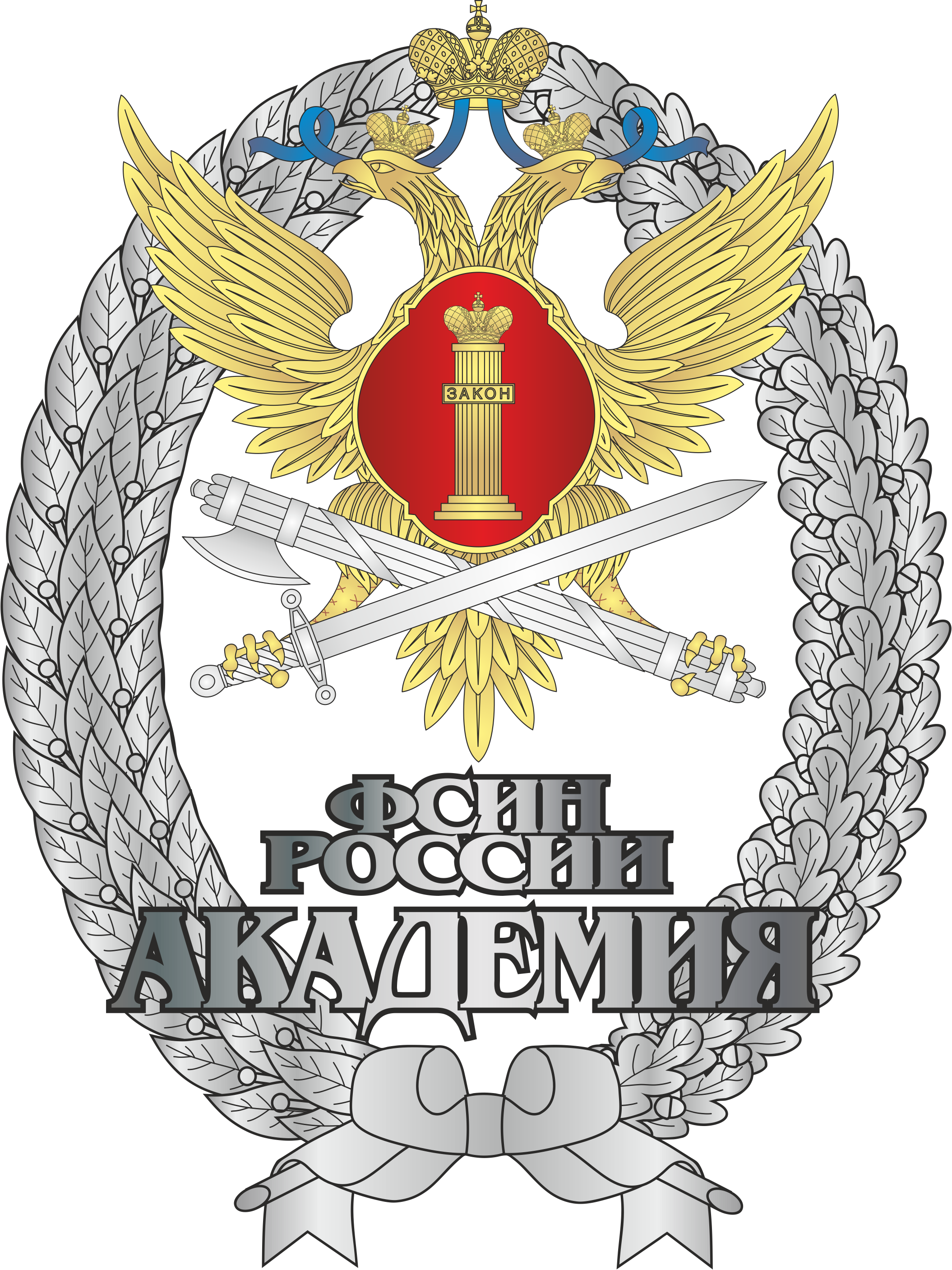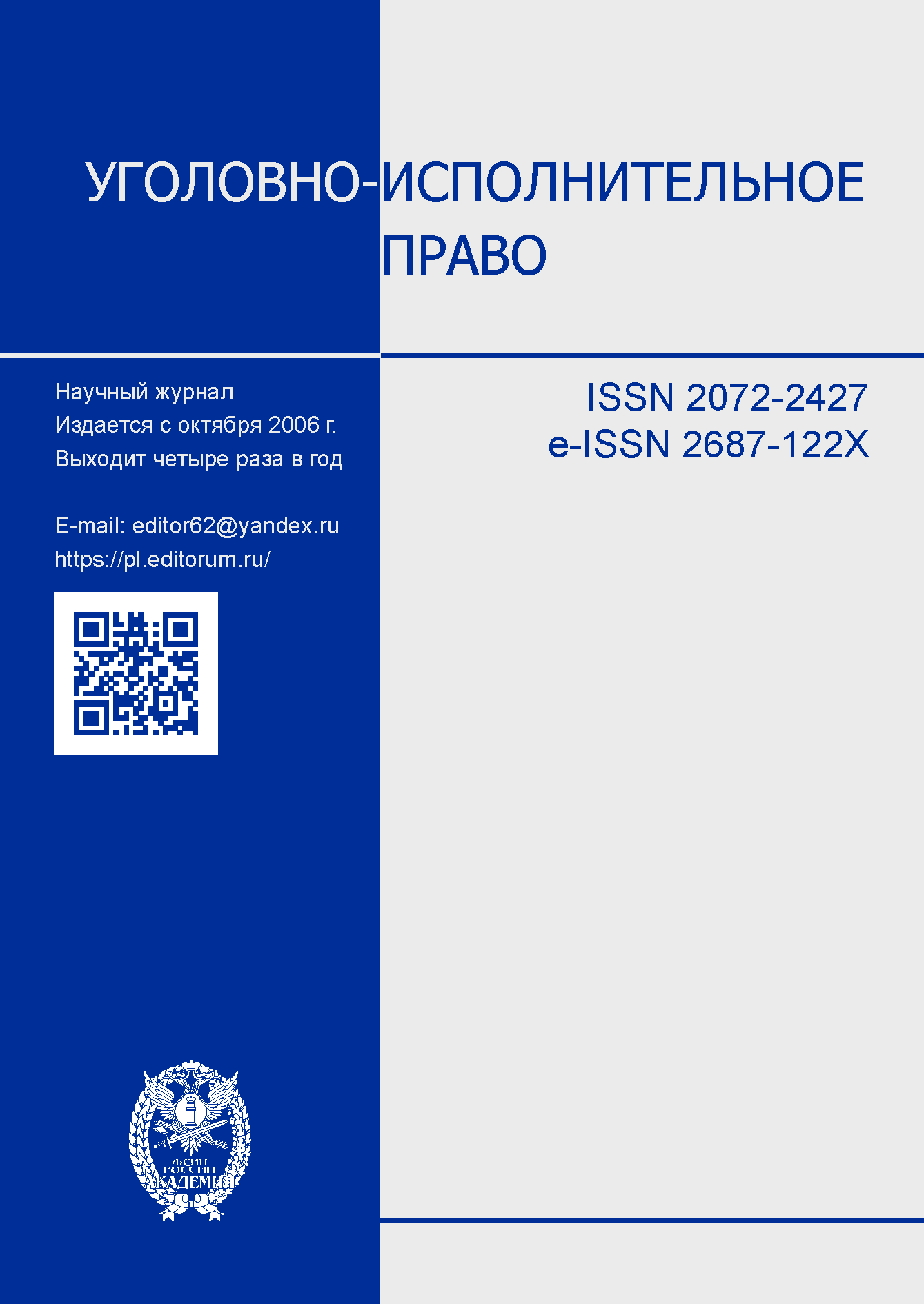UDC 343.2/.7
UDC 343.847
The article discusses some issues of the implementation of criminal policy in the field of resocialization of convicts in the Russian Federation. Based on the analysis of statistical information, the content of normative legal acts, various points of view presented in criminal law and criminological doctrinal sources, the author formulates his vision in the field under consideration, offers a definition of the resocialization of convicts. It is proposed to include not only convicts in the sphere of re-socialization processes, but also persons who have suffered from crimes and need help and support. The article also examines the positive foreign experience, formulates proposals for its implementation in Russian legislative and law enforcement practice. Attention is drawn to the fact that foreign experience should be used critically, focusing primarily on national historical features.
resocialization, probation, criminal policy, crime prevention, convicts, victims
1. Perinskaya, N. A. 2005, ‘Resocialization’, Encyclopedia of Humanities, iss. 4, pp. 161-162.
2. Skiba, A. P. & Maloletkina, N. S. 2022, ‘Draft Law “On Probation in the Russian Federation”: Some Aspects of discussion in 2021-2022’, Penal law, vol. 17(1-4), iss. 2, pp. 176-194.
3. Shestakov, D. A. 2008, ‘From the concept of crime to the criminology of law’, Social Sciences and Modernity, iss. 6, pp. 131-142.
4. Gurinskaya, A. L. 2018, Anglo-American model of crime prevention: a critical analysis, A. I. Herzen Russian State Pedagogical University, St. Petersburg.
5. Moskalkova, T. N. 2020, ‘Problems of resocialization of convicts and persons released from prison’, Bulletin of the Commissioner for Human Rights in the Russian Federation, iss. 8, pp. 4-13.
6. Kolokolov, N. A. 2019, ‘Resocialization of former prisoners: from utopia to utopia’, Law Practice, iss. 3, pp. 10-17.
7. Siryakov, A. N. 2020, ‘Spanish legislation on the correction of convicts’, Russian Law Journal, iss. 4, pp. 28-35.
8. Rezhapova, I. M. & Zaborovskaya, Yu. M. 2019, ‘Foreign experience of working with prisoners for the purpose of their further re-socialization (on the example of the legislation of the United States of America and Canada)’, Man: crime and punishment, vol. 27(1-4), iss. 1, pp. 40-46.
9. Zhao, Y., Messnera, S. F. & Liu, J. 2020, ‘The influence of importation and deprivation factors on prison adaptation: Insights from Chinese prisons’, International Journal of Law, Crime and Justice, iss. 63, December, doi:https://doi.org/10.1016/j.ijlcj.2020.100425.
10. Herber, E. 2018, ‘Crime prevention in Japan orchestration, representation and impact of a volunteering boom’, International Journal of Law, Crime and Justice, iss. 54, pp. 102-110.
11. Teplyashin, P. V. 2020, Neoliberal Development penitentiary systems, Moscow.
12. Mizanbayev, A. E. (ed.) 2012, Law-making and law enforcement paradigms of reconstruction of criminal legislation: national and international modeling experience: monograph, Kostanay.











